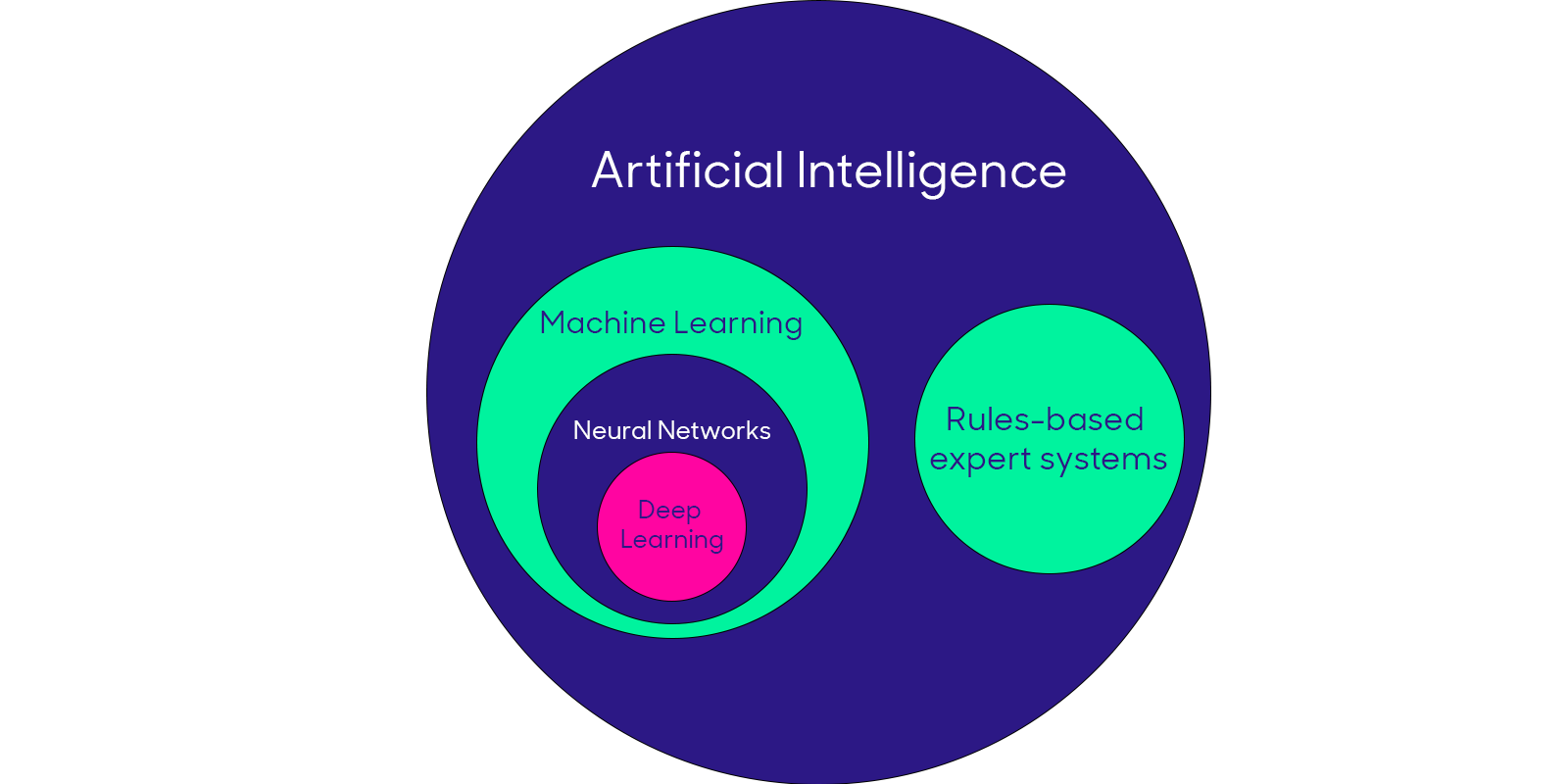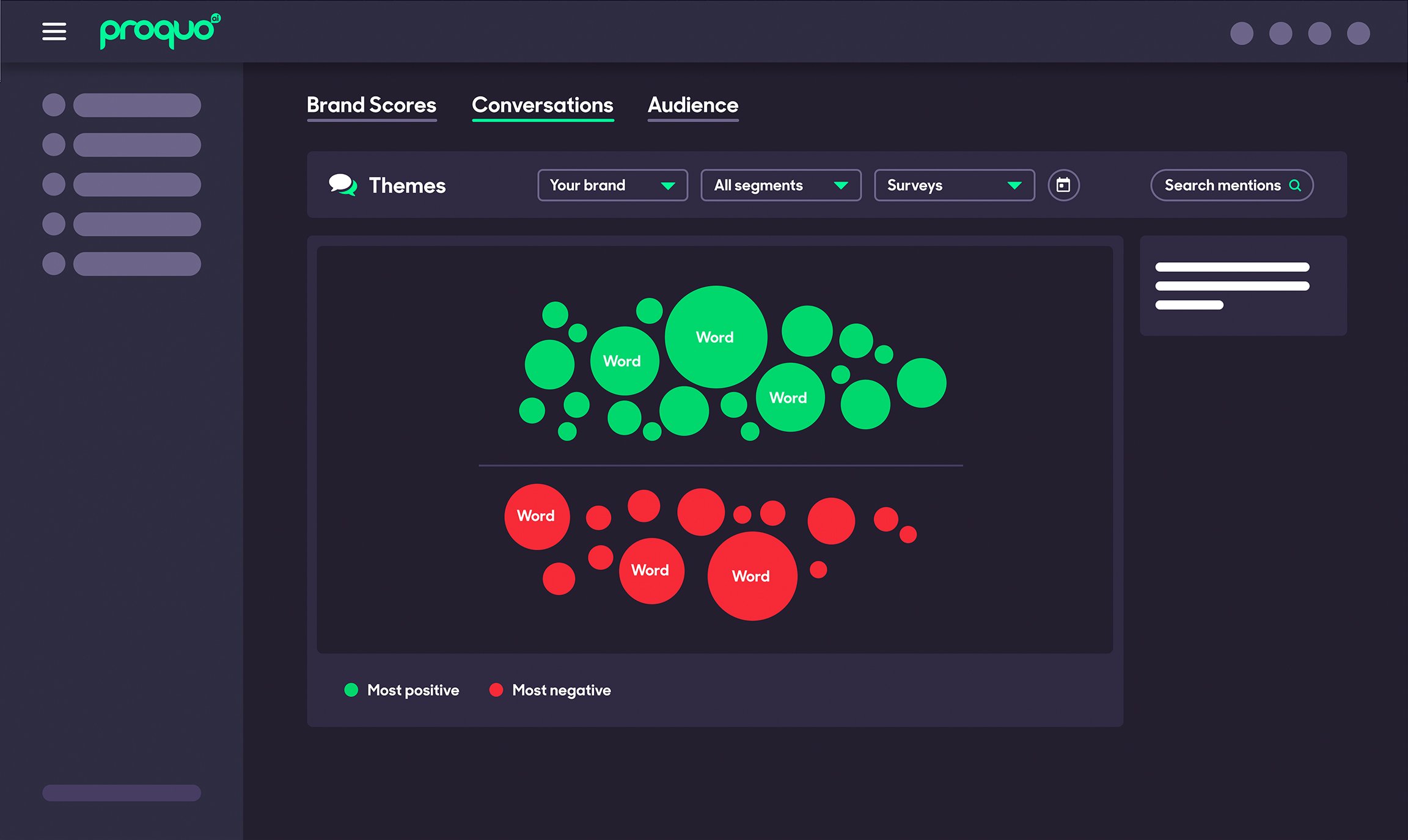Posted on October 24, 2023
Updated on October 24, 2023
7 min read time

It’s an interesting time for Market Researchers wanting to embrace AI.
A time of excitement, hyper-adoption, and accelerated increase of use cases (often just for show). It's also a time of fearmongering, learning about the risks, building trust, and showcasing transparency.
One thing is clear: whether we like it or not, AI is here to stay. What you, as a market researcher or a marketer, will do with that fact will define the next couple of years for you and your brands.
Don’t bury your head in the sand now because the train, along with your competitors will be long gone, and you might not be able to catch up.
With the ambitious goal of leveraging the world's most extensive subconscious feelings toward brands, we knew efficient data processing would be key. That's why we implemented AI at the very core of our platform from the very beginning. Three years and 24 million consumers' feelings and thoughts collected later, we made the right choice.
We firmly believe that AI can be a great accelerator, and we hope you'll agree after reading this blog post.
In this blog, we'll outline the following:
Let's look at the types of AI as an evolutionary process.
First, rule-based AI, as the name suggests, uses rules humans create to solve well-defined problems. Such expert systems can be applied to automate processes in chatbots, ad targeting, and product recommendations.
Machine Learning left behind strict rules introduced by humans and can learn and improve its outputs based on data. The system makes predictions and decisions, evolving with each new data set ingested. That continuous improvement can be used to analyze and tailor consumer messaging and increase conversion.
Deep learning is a type of ML that uses algorithms to imitate a human brain's functioning. It's primarily used to analyze big data sets, which can be helpful in sentiment analysis, image recognition, and Natural Language Processing (NLP).

And thus, we've arrived at the current state of Artificial Intelligence, namely AI based on Large Language Models. LLMs have transformed how we think about NLP because of how well they understand and generate human language.
The LLM superstar is, of course, ChatGPT, or Generative Pre-trained Transformer. (Yes, that's its full name; trust me, it told me itself). ChatGPT uses Machine Learning and Deep Learning to find answers to users' questions among almost all existing data and answers thanks to NLP.
ChatGPT is already widely adopted as a research tool. However, there is a caveat that we'll discuss in the next section.
AI has become widely adopted thanks to no-code solutions like ChatGPT. As with many society-altering innovations, there is an understandable hesitation towards the disruptor of what used to be. Just like ATMs in the 1960s, which transformed the world of finance, there are security concerns about AI.
Here are the key considerations when deciding on venturing into the world of AI:
Anyone who uses AI should be mindful of its limitations and risks; however, that should not prevent us from embracing it, as it's a powerful tool for any market researcher.
Let's make it clear that Market Research needs humans. AIs don’t buy products. Yet. And to understand shopping behaviour of humans, we need another human.
Ultimately, the goal of any Market Researcher is to tell a story. A story backed by data on consumers' feelings and thoughts.
Can AI pick up on the nuances hidden in the answers given by consumers in an open-ended questionnaire? Artificial Intelligence works best with formulaic responses and yes/no questions. For AI, there is no right or wrong way to analyze data. There is just analysis.
That is precisely how you should apply AI in your market research: data analysis. Right now, we have more data points than we've ever had. Market Researchers and Insight Managers pay so much for data. What do you do with it, then?
AI can strip out the noise, meaning synthesize and contextualize your data. As you know, Artificial Intelligence works exceptionally well with large datasets, and it can make it more manageable for you to analyze. Make AI do the heavy lifting while you can focus on the nitty-gritty details, helping you understand your consumers better and much faster. It lets you save time to be more creative, tell the story that positively affects your brand and business, and ensure that market research is acted upon.

Your time to insight will vastly improve with AI.
Apart from big data analysis, AI is an excellent tool for research, especially ChatGPT. We can ask AI any question with deep learning and Natural Language processing. So, a conversation with ChatGPT can be a great starting point for your research. Keep in mind that ChatGPT is limited to a relatively small input size, so often you will have to be selective about the context that you provide, and it might be more useful to find a fine-tuned model that understands your context better.
AI is significantly faster than humans at finding the answers on the web, analyzing multiple sources, and summarizing the answer for you. In addition, it can explain complex subjects in simple words, giving you pointers on where to search next.
Of course, we're not saying to trust AI blindly; far from it. But, again, that is why Market Research will always need humans. All the data provided by tools like ChatGPT should be double-checked with your subject matter experts or other reliable sources before anyone at the company acts on it.
Acting upon reliable, robust data is crucial for marketing teams. However, with all the AI-powered research and data analyses, is your research conducted in real-time? As we've mentioned, ChatGPT knows everything. And no longer held back by the September 2021 cut off for data it can access.
How can you leverage deep learning data analysis to produce real-time actionable insights based on consumers' feelings and thoughts?
With ProQuo AI, of course!
Without a doubt, you've noticed how many companies are implementing AI into their existing products. The question is whether these new features are based on the customers' actual needs, truly improve the product, or result from hype.
In the coming years, backing up your usage of AI will be even more critical. Even now, people have started looking for more transparency around AI, making sure that after investing thousands of dollars into forward-looking tools, "AI-powered" is not an empty slogan.
At ProQuo AI, Artificial Intelligence has been a cornerstone of our market research platform; hence, the name. There are three main areas where we apply AI so you can uncover what your consumers want & how they feel in real-time.
Every month, ProQuo surveys 1M people, averaging 6M data points a month and 200K a day. lt would take weeks for a market researcher to analyze the sheer volume of data available on brands, competitors, and categories. AI handles these jobs in seconds, doing the heavy lifting and allowing researchers to focus on decisions & action, not analysis.

At this point, it’s worth remembering that the technological marvels of ChatGPT apply to language, not math. Currently, ChatGPT has difficulties solving simple equations, not to mention calculations necessary to process data in real-time. That’s why, such tools alone aren’t the answer.
AI has been a friend of math for far longer than language. At ProQuo AI, our data scientists continuously work on the AI models enabling the correct processing of data collected on the platform.
ChatGPT is only two years old, but there have been AI models since the 1960s. It’s worth remembering that the new techniques, like NLP, add to your toolkit, but don’t supersede it. At ProQuo AI, we’re finding the right tools for the job, combining the established numerical models with the nascent language ones to provide trustworthy, real-time insights.
Carl Sandrock, Head of Data Science and AI, ProQuo AI
The cornerstone of our platform is the data analysis based on the 16 Driver framework. The 16 Drivers are attributes that define how people feel about brands and whether they want to interact with them. Essentially, equipping AI with a reliable algorithm to translate data into actionable insights.
Combining that with our industry-leading Implicit Response Timing approach, you can place emotion on a quantifiable scale. That analysis is visualized clearly, concisely, and consistently on our platform in real time.
In addition to millions of quantitative data points, ProQuo AI gathers and analyzes hundreds of thousands of open-ended consumer responses. That feature was introduced in 2019, and in late 2022 we updated it with a semantic search, powered by OpenAI. No more time wasted reading thousands of survey responses, the AI can quickly sort and categorize all the information for speedy analysis.
Thanks to Natural Language Processing, all the responses are visualized as word clouds and analyzed based on:

Applying machine learning to the process, the algorithm improves the categorization into the 16 Drivers with each new response. Market Researchers and Insights Managers can and should train the algorithm by double-checking the responses and their relevancy to make the analysis even more robust.
Even with all the data organized and analyzed, understanding what steps to take next, or which actions will have the biggest impact on the brand, still takes a lot of time.
That’s why, in early 2021, we added a new feature to the ProQuo AI platform that turns data into instantly actionable plans. AI analyses the strengths and weaknesses of your brand and category and the leading brand in your category. Then, it looks for competitive advantages, disruptions, and ways to improve where you fall behind.
For example, if the analysis shows that your brand should focus on Integrity and Transparency, you could:
There are 120 actions available, which will be specific to your brand. The ProQuo platform identifies those which will make the most significant impact, aligned with your specified goal.
After you decide which action to follow, you can measure the effectiveness of your activities by looking at your Integrity and Transparency Drivers daily and over the next month or quarter.
We highly encourage you to explore the applications of AI in your daily work. Getting on the action early will allow you and your business to prepare for the second wave of AI. The time of slower, deliberate development, shaping policies, and the right mindset. Not fearing the change, but embracing it, with all its benefits and pitfalls — finding a balance between leveraging AI for data processing and research and telling creative stories that elevate your brand.
If you want to learn more about how we apply AI to our platform and see real-time actionable insights about your brand for yourself, book a demo today!
Our intelligent platform will take your brand further, faster.
Don’t believe us?
© 2020-2023 ProQuo AI International
All rights reservedWebsite by Blend